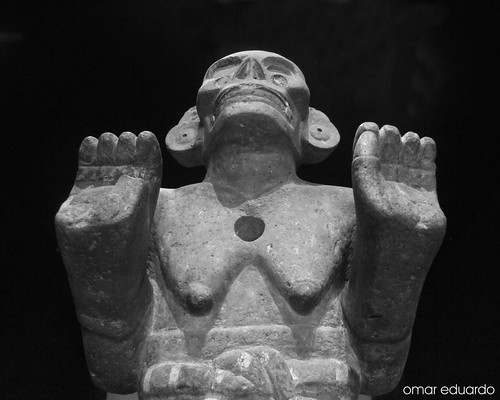- Julija Sukys
- “If you can read this book and not shriek with delight, your soul is dead”: On Authors Praising...

The title of this post comes from an essay by Alan Levinovitz called I Greet You in the Middle of a Great Career: A Brief History of Blurbs. He quotes George Orwell, who was a strict enemy of blurbs, calling them “disgusting tripe.”
The article is an interesting history of praise of authors by authors. And Levinovitz does a good job cataloguing the sins that the publishing industry has committed (for centuries, it would seem) in the process: corruption, cronyism, hyperbole, and the practice on the part of some publishers to provide sample blurb templates.
As authors become better known, they inevitably find themselves overwhelmed by blurb requests. Often these come from publicists, but some come from authors themselves. Ignoring a publicist is one thing, but turning down a fellow writer can be awkward. Even more awkward is reading a colleague’s book to find that you can’t give it a a positive blurb. Many accomplished authors deal with this by having a no-blurb policy. Others, like Camille Paglia, have publicly called for an end to the practice all together.
In To Blurb or Not to Blurb, Bill Morris asks the question of whether or not blurbs sell books. The answer appears to be a qualified yes. Praise by an author you know and like may indeed get you to pick up a volume from a display table. That said, Morris also finds that a blurb by an author a reader distrusts or whose work she dislikes may be a turn off.
Last spring I got a note from my publisher that it was time to start seeking out pre-publication praise for Epistolophilia. I swallowed my pride and started to cast about for writers to contact. In some cases, I was met with silence. In others, I received kind notes that explained, with an apology, that the writer had a no-blurb policy. (One answer arrived long after the due date for jacket copy, and though I didn’t get a blurb, I did make a valuable and friendly new contact with whom I continue to correspond. So even this most humbling of processes can bring unexpected rewards.)
Getting turned down didn’t surprise me. Nor did the silences. What surprised me most was getting three sincerely positive blurbs for my book. One of them is from David Bezmozgis. His blurb for Epistolophilia: “An intelligent, humane, and noble book that rescues from obscurity an intelligent, humane, and noble woman. It stands as a testament to the power of reading, writing, compassion, and extraordinary courage.” Wow. That even impressed my publicist.
Is the process of blurbing cynical and corrupt? Sometimes, yes. But it is also a way for established writers to help unknown ones.
The first time this occurred to me was when I heard Stephen Elliott (The Adderall Diaries) talk at the AWP Conference last year. When Roddy Doyle blurbed his book (writing, “You don’t just read The Adderall Diaries; you fall right into them. You read as if you are a few words behind the writer, trying to catch up, to find out what happens, to yell at him that he’s doing a great job. And he is. It’s a brilliant book.”), he changed the game for Elliott. Far from a cynical move, such a blurb is a gift.
The same is true of Bezmozgis. He didn’t have to read my book, or even answer my email. He didn’t know me or owe me anything, and goodness knows, he has enough on his plate. But he read it, found it valuable, and said so. It was an act of generosity that I’ll never forget.
Perhaps one day I’ll get the chance to do the same for someone else.
Your thoughts on blurbs?
[Photo: Praise the Sun by Omar Eduardo]
[This post was originally published at http://julijasukys.com]
This post is part of a weekly series called “Countdown to Publication” on SheWrites.com, the premier social network for women writers.
Writing Status Badges












Writing Status Badges












Featured Members (7)
Writing Status Badges












































Interesting stuff. I will need to screw up my courage to be requesting blurbs soon and this was encouraging (well, in the "be brave little soldier!" way).
Catherine, I love your story, and I find it life-affirming that you too have been met with kindness in our angst-ridden craft. Strangers, especially genius ones, can be most surprising!
Not knowing a thing about blurbs I wrote to a handful of women's fiction writers and was surprised when one blockbuster writer wrote back, read my manuscript (which hadn't even gone through the long editing process) and provided me with a brilliant blurb. How amazing!
I also write for a litmag (theviewfromhere) and have approached writers for interviews and have found much generosity and many new contacts. All part of the ride!!
Blurbing is such tricky business, and these delightful links give it the perspective it deserves. There's no getting around it -- we all look at blurbs when we buy books. And as writers, we want someone's bold imprimatur on our own books. When I was looking for blurbs for my short story collection, I confess I was shocked -- maybe even a little hurt -- when a writer who at one time was a friend (we were in a writing group together) said, "I don't do blurbs." It just struck me as almost pretentious. So be it. I was lucky to get two wonderful writers -- Alan Lightman and Nancy Zafris -- to read my book and give me some 'blurb-worthy' quotes. But it took effort. Then again, what doesn't take effort for writers? Great post, Julija -- the kind of post that's even better than a blurb in that it makes me want to know more about you and your work. ;-)
Joanne -- really good advice re: the emails. I too never ignore emails. You're lucky to have a background that has taught you how to approach people. I cut my teeth years ago as a lowly associate editor, writing cold emails to famous and not-so-famous writers asking them to contribute to our magazine. Looking back, that process taught me that most people are kind and polite, even if they turn you down. And as this process taught me, even if people do turn you down (or don't get back to you time), that contact can still grow into something worthwhile.
My sales career that came prior to my writing career makes it a lot easier for me to ask a stranger for something than it might if I did not have such good training. That said, part of that training was not to ignore emails. Mostly because you just never know when you might need the sender's help. If I can't do something I'll let someone know. I hope for the same, but I have found and been unpleasantly surprised by those who don't ...especially when they are not strangers!
Zetta, the "off-putting" blurb is probably a rarity, and not something I would worry too much about.
Hi Zetta! Here I'm talking about pre-publication blurbs (praise) that are solicited before review copies even go out. Reviewers' quotes then get added to the bunch as they appear. I solicited my own pre-publication blurbs, because I publish with a reasonably small press (by commercial standards; though it's a huge press by small press standards). These are the snippets generally written by other authors, or sometimes by cultural figures. For example, Jane Goodall blurbed the book of a friend of mine, which was a huge coup for him. Take a look at the essays I linked to. They're worth a read and lay out the issues really clearly.
Y'know...I'd never give this issue any thought. I've always assumed it was just SOP when it comes to book marketing and production. Maybe I'm confusing the term "blurb" (as in promo teaser) with "endorsement" and defining both differently.
We generally use quotes from reviewers. If the author knows someone who can provide an endorsement, we'll consider it. I can imagine how intimidating it must be to ask a colleague that you may not know personally to provide you with an endorsement.
To make matters even more difficult, it's impossible to know if a reader will be attracted or put off by the person providing the blurb.